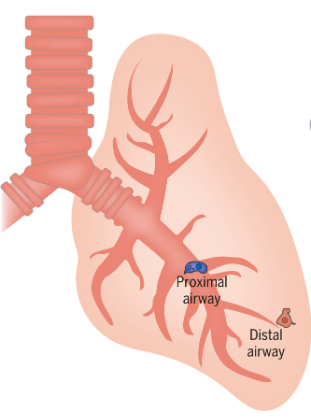Damon Runyon News
View New Articles By
View New Articles By
Some cancer cells, such as those in lung tumors, change drastically in appearance and behavior when they develop resistance to targeted therapies. The result of these changes, collectively known as histological transformation (HT), is a more aggressive tumor type. HT necessitates a new therapeutic strategy, since the original oncogene is no longer driving the tumor’s spread. But first, researchers have to find out which genes have assumed control.
Blood stem cells, like all living things, lose their regenerative capacity with age. Because blood stem cells generate not only blood but all the cells in our immune system, age-related dysfunction can lead to a plethora of systemic issues in older adults, including blood cancer. There is, of course, no stopping time. But according to a new study from researchers at the Columbia Stem Cell Initiative, including Damon Runyon Fellow James Swann, VetMB, DPhil, there may be a way to slow down the clock.
Prostate cancer is a disease with many subtypes, some of which are more difficult to treat than others. While most prostate cancer cells rely on androgen hormones to grow—allowing androgen blockers to emerge as an effective therapy—15 to 20 percent of prostate cancers evolve to be “androgen-independent.” One such subtype is known as castration-resistant neuroendocrine prostate cancer (CRPC-NE), for which chemotherapy is the primary treatment strategy.
One in eight women in the U.S. will develop breast cancer during their lifetime, and for many, the best treatment option is surgical removal of the tumor, known as a lumpectomy. Unfortunately, the surgical tools currently in use do not always accurately identify the extent of the tumor, necessitating a second surgery for up to a third of patients.
A tissue biopsy, in which a section of skin is surgically removed for microscopic evaluation, has long been the most effective means of diagnosing skin cancer. But biopsies are invasive and time-consuming procedures, with patients often waiting days for results, developing scars, or forgoing biopsy altogether and opting to “wait and see.” Given that one in five Americans will develop skin cancer in their lifetime, this is a dilemma many of us have experienced firsthand.
Immunotherapies to treat pancreatic cancer—a disease with a nearly 90 percent mortality rate—have been the subject of intensive research efforts in recent years, largely because they have succeeded where other treatment approaches have failed. New developments in mRNA vaccines, immune-enhancing therapies, and combination immunotherapy-chemotherapy regimens have marked a new era in pancreatic cancer treatment. But still, for many patients, nothing seems to work.
Just as the study of a growing plant or animal must take into account its environment, cancer researchers must look beyond a tumor to understand how the surrounding tissue impacts its development. In the case of gliomas, the most common and aggressive type of brain tumor, this means looking at neurons—what signals they emit, and how these signals may play a role in brain tumor progression.
A recent study by former Damon Runyon-Sohn Fellow Kathryn R. Taylor, PhD, and her colleagues at Stanford University sheds new light on these questions.
Renal cell carcinoma ranks among the top ten most common cancers globally, with the clear cell subtype (ccRCC) accounting for the majority of metastatic cases. While some ccRCC tumors respond to immunotherapy treatment, it is often difficult to predict which patients will benefit. But those who do likely have something else in common—which is why, as with many problems involving pattern recognition, researchers are turning to artificial intelligence (AI) to help them figure out what this “something” is.
Only about one percent of the human genome contains what we recognize as protein-coding genes: DNA sequences that are transcribed into RNA sequences and then translated into proteins. Much of the intervening space between genes consists of mobile DNA sequences, known as transposable elements, which have the ability to “copy and paste” themselves throughout the genome.
Metastatic pancreatic cancer is often resistant to chemotherapy-based treatments, and clinicians do not currently have a good way to predict whether a patient’s cancer will respond or not. At the Abramson Cancer Center of the University of Pennsylvania, former Damon Runyon-Rachleff Innovator Gregory L. Beatty, MD, PhD, and his colleagues are seeking to uncover the factors that determine response so that patients and clinicians can make better informed treatment decisions.